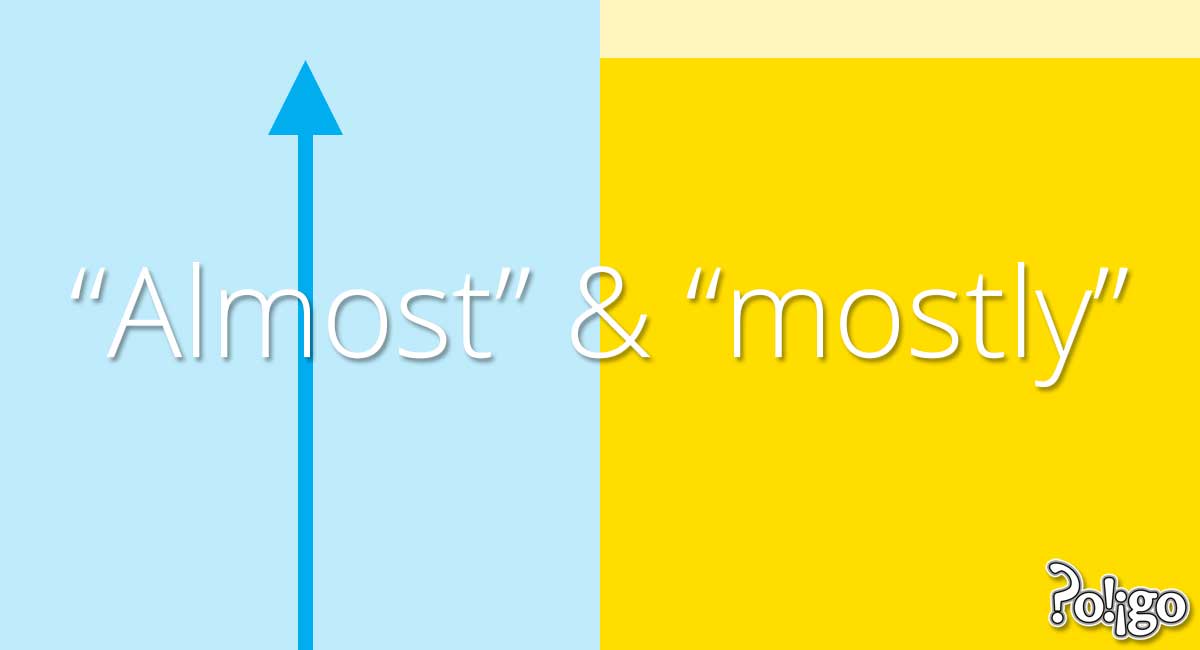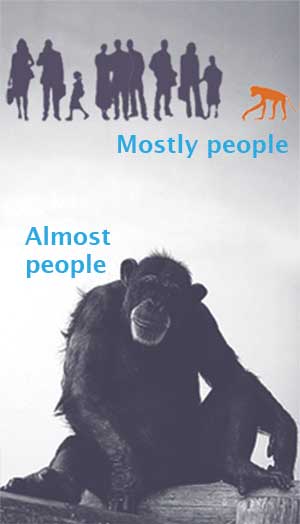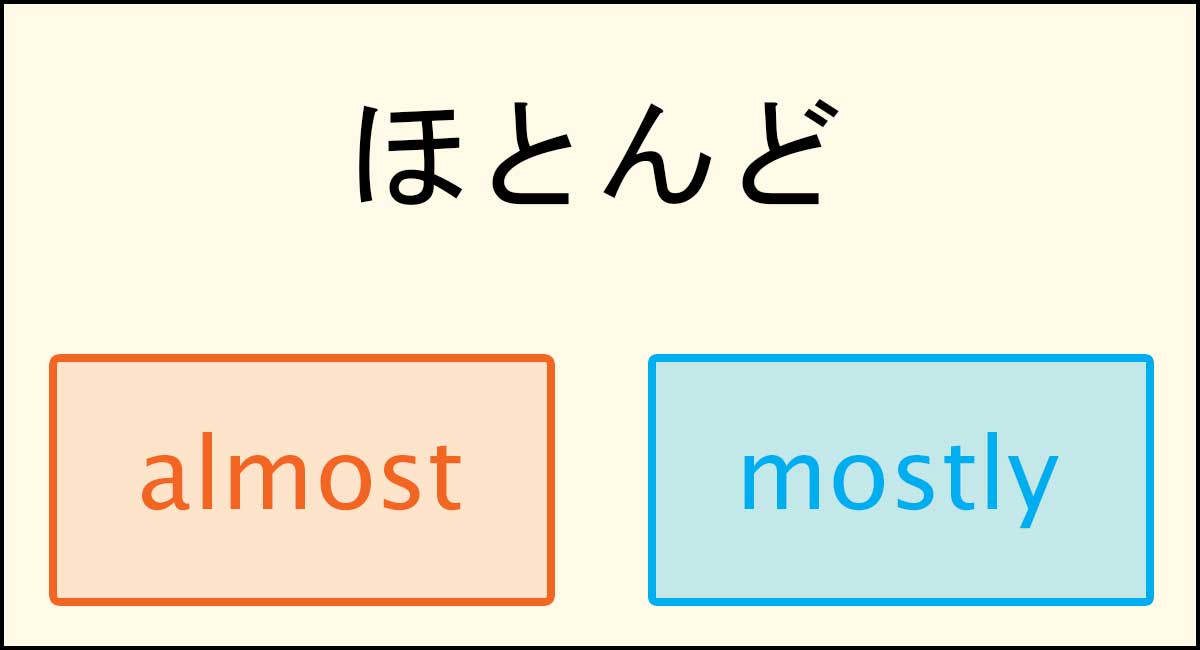
"Almost" and "mostly" are confusing for Japanese people learning English. Part of the problem is the Logic Trap we talked about in another post.
I hope I can make the difference between "almost" and "mostly" clear for you. They are nearly the same, but there is a difference in the idea behind them. That is what makes them difficult, and why people have trouble.
 Almost
Almost
"Almost" means "nearly", "not perfectly" or "close to".
- If you work until 6pm, and it is 5.55pm, you are almost finished. But the key is that you are not 100% finished. You cannot say, "I'm finished!"
- Think about a chimpanzee. A chimpanzee is very similar to a person. Chimpanzees are almost people, but they are still not people.
- A week before my wedding, I am almost married. But, I am still not married.
Mostly
"Mostly" means "the biggest part", "usually" or "mainly".
- If I have ten things to do, and I have done 9, then I am mostly finished.
- Look at the top part of the picture on the right. It's mostly people, and one monkey.
- "Mostly married" doesn't make any sense.
Compare "almost" and "mostly"
"Mostly" means more than half of a group. If I have 10 sweets, and 7 are chocolate, I can say, "These sweets are mostly chocolate." Can I say that my sweets are almost chocolate? No. Some are, and some are not, chocolate. "Almost chocolate" sounds like fake chocolate.
"Almost" means "close to". So, imagine I am in a car driving home. I turn into my street. I am almost home. Can I say I am mostly home? Yes, but "mostly home" means something different:
- If I stay home every night of the week, but on Friday night, I go bowling, then I am mostly home in the evenings—6 of 7 nights I am at home.
Try it out!
There are some special cases, and it is not always so simple, but this is the main idea. Try to practice. Send us your examples to check.


